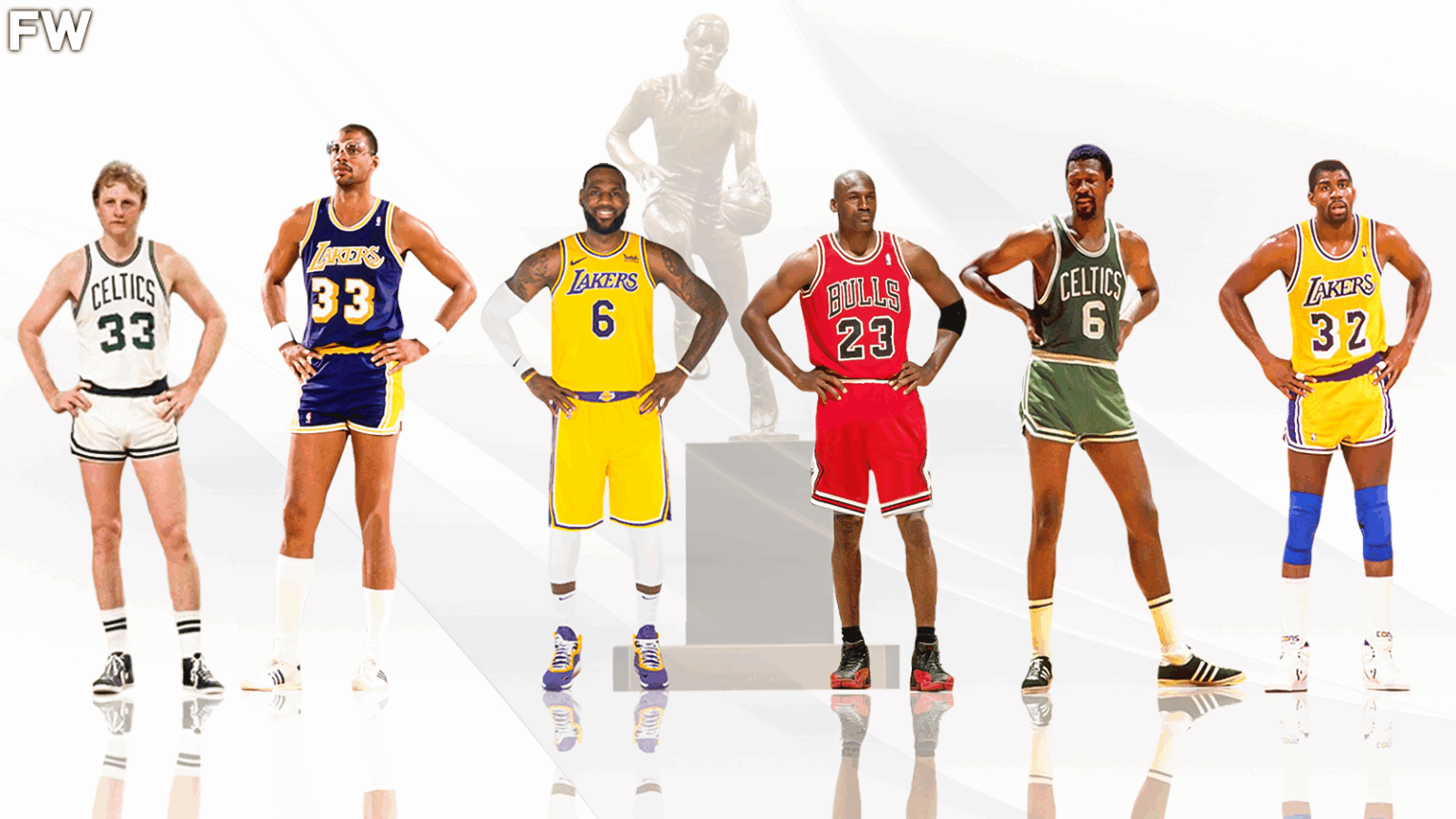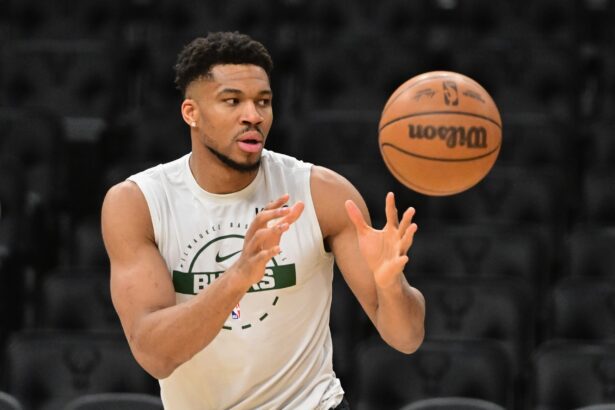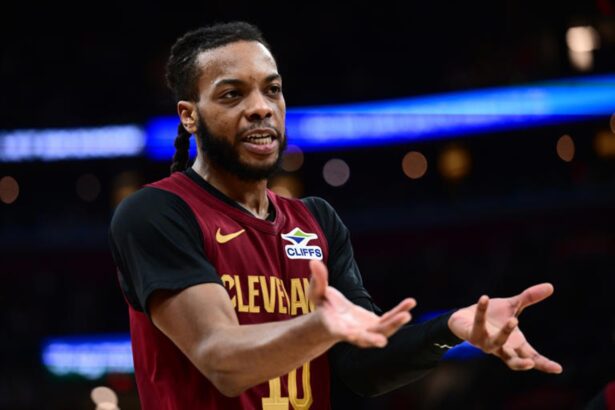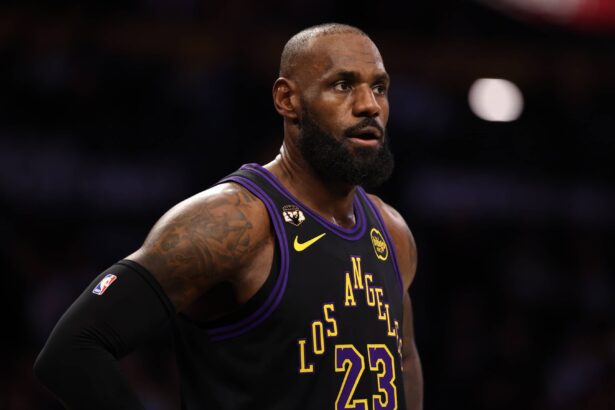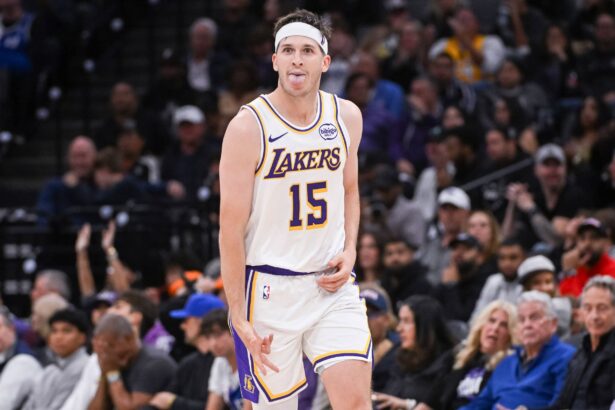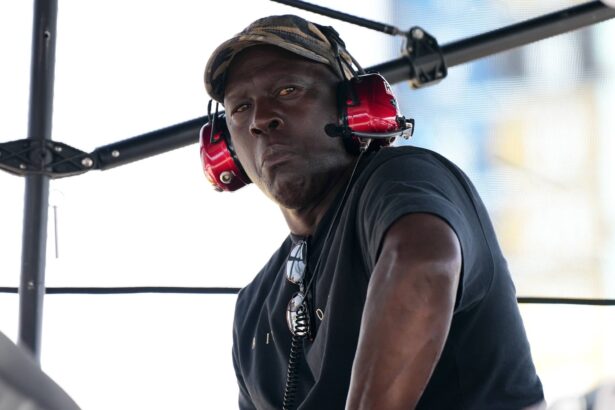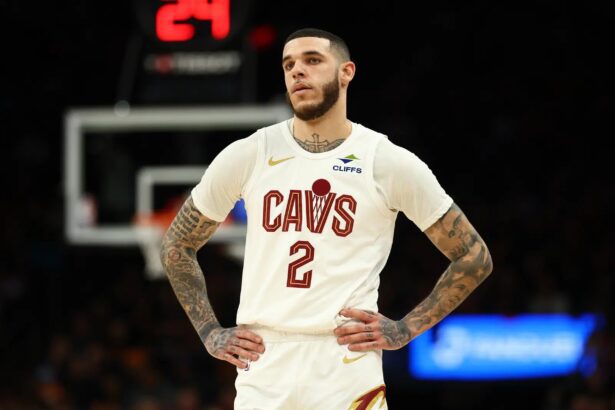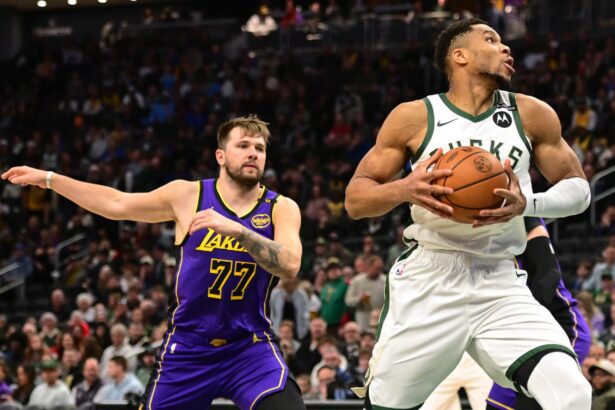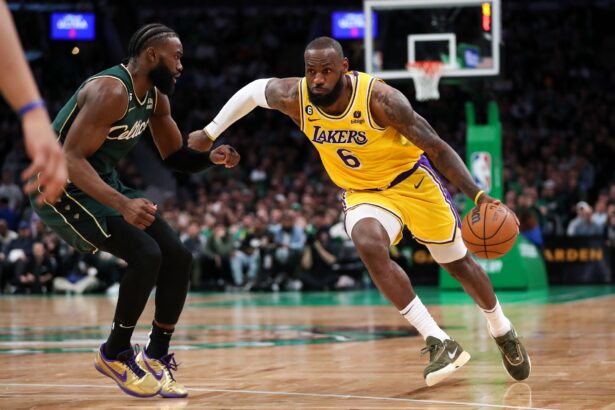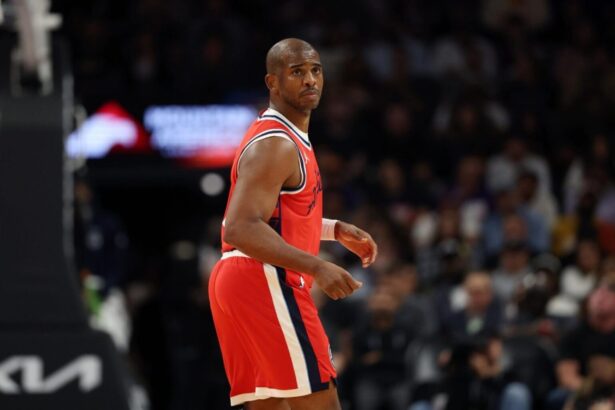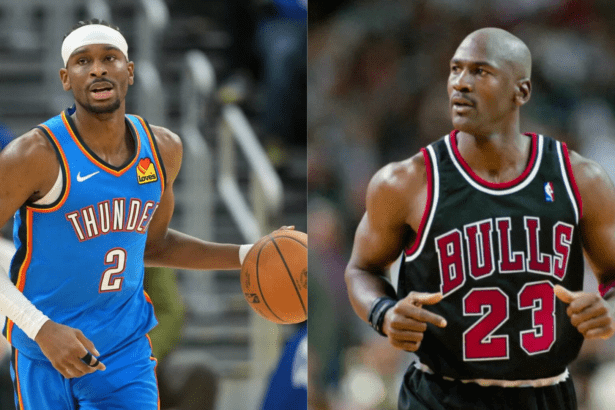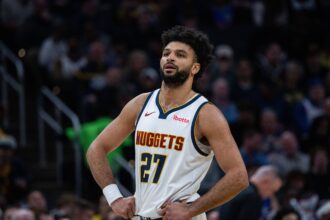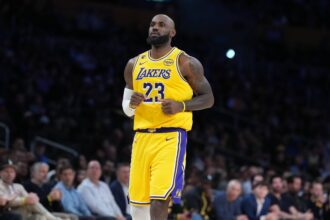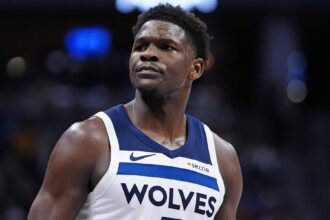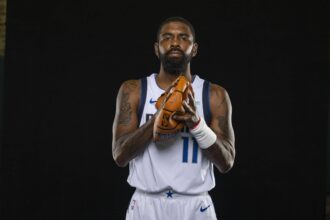One of the most critical individual accolades a player can win is the Most Valuable Player Award. Since only one player is chosen for this award, there is steep competition for being the MVP of your team all season. Not to mention, the NBA is a league full of superstar players who all probably deserve the MVP Award over the course of 82 games. Since the 1954-55 season, the MVP Award has been awarded to the best single player over the regular season each and every year. Most often, although there are some disputes, the MVP award is awarded to the best player in the league that year and who provided the most value to their team.
We have witnessed some incredible MVP seasons, including record-breaking circumstances and production. The best way for players to get the best probability on their side to win chips is by finishing among the top three in an MVP race. Capturing one of the top three spots and remaining in that category for an entire season is the best chance a superstar player can get to end a regular season strongly and convince voters he is the most valuable player.
Amazingly, there are some iconic legends who managed to finish among the top three in MVP finishes a multitude of times. This signals not only elite superstar talent to be among the best players in a season time and time again, but it might also signal which players might have missed out on an award unfairly. We have already seen the deserved MVP winners who were robbed between the 1990 and 1999 seasons and how some players among the top three might have been unfairly given the award. Piggybacking off iconic MVP seasons, it is time to uncover the ten current and future Hall of Famers who had the most top three MVP finishes in NBA history. It is important to note that current star James Harden joins Kobe Bryant, Shaquille O’Neal, Oscar Robertson, Jerry West, and David Robinson with five top-3 finishes in their careers, but the tie-breaker was given to those with the most MVP award wins.
8T. Bob Pettit – 5 Seasons
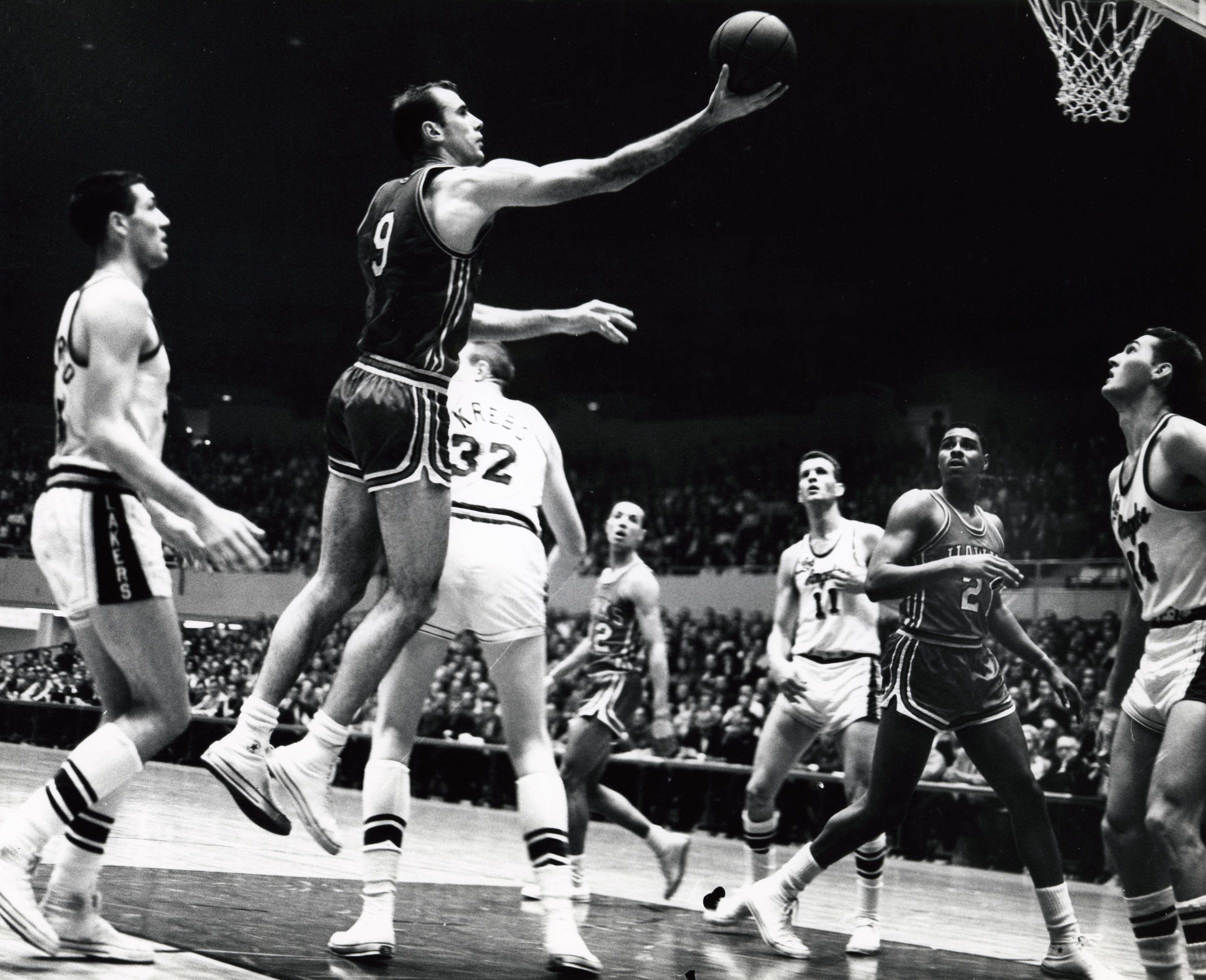
-1955-56 (MVP)
– 1956-57 (2nd)
– 1958-59 (MVP)
– 1959-60 (3rd)
– 1960-61 (2nd)
Bob Pettit was a Hall of Famer and the dominant NBA superstar that took over the league during the 1950s. Pettit mainly patrolled the paint and averaged an incredible 26.4 PPG over his career to go along with 16.2 RPG. His scoring ranks eighth all-time, while his rebounding figures rank third all-time behind Wilt Chamberlain and Bill Russell. Obviously, there are elite achievements that will likely stand the test of time.
One of the most physically intimidating players to ever play the game, Pettit was a powerful forward who could score the ball effortlessly in the paint. Unsurprisingly, he had five seasons in which he finished among the top three in MVP voting and ended up winning two MVP awards in 1956 and 1959, both with the St. Louis Hawks.
8T. Tim Duncan – 5 Seasons
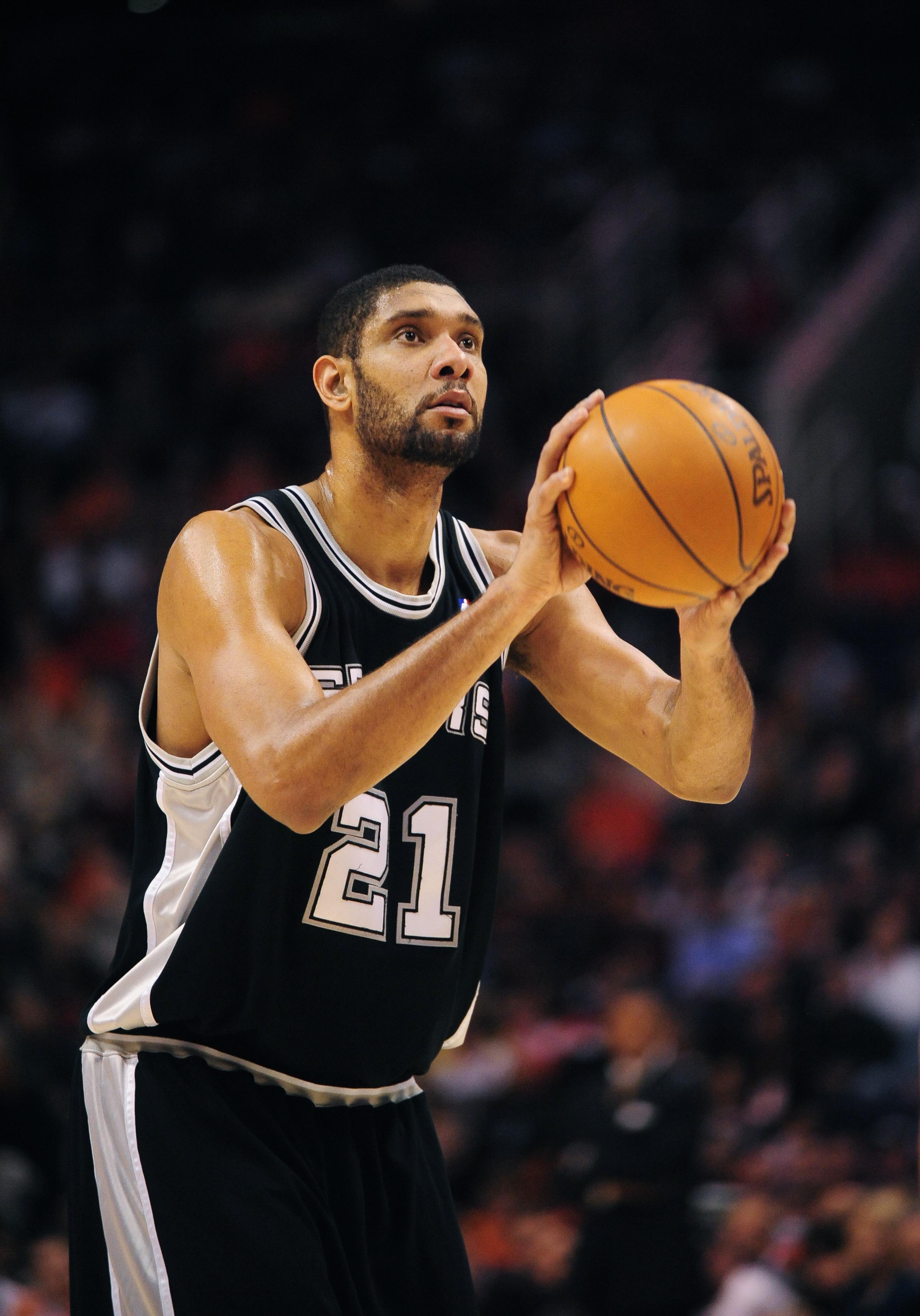
– 1998-99 (3rd)
– 2000-01 (2nd)
– 2001-02 (MVP)
– 2002-03 (MVP)
– 2003-04 (2nd)
By most accounts, Tim Duncan is considered the greatest power forward of all time. He captured an impressive 2 MVP awards, 3 Finals MVP awards, and 5 NBA championships. In terms of team accolades, Duncan led the charge for a San Antonio Spurs dynasty that dominated the 2000s and even 2010s decades. But his impact came beyond simply numbers and accolades because he also terrorized defense with the utmost skill in terms of dominating the post.
The Big Fundamental also joins Bob Pettit for the tie-breaker as he managed to win two MVP awards in 2002 and 2003 in back-to-back fashion. Duncan posted 25.5 PPG, 12.7 RPG, and 3.7 APG in 2002, followed by 23.3 PPG, 12.9 RPG, and 3.9 APG in 2003. Tim Duncan did well to win back-to-back MVPs despite playing in an era with other elite stars in their prime, including Shaquille O’Neal, Kobe Bryant, Kevin Garnett, and Allen Iverson. As a result, Duncan finished second twice and third once over the five seasons in which he could have won the MVP award.
8T. Karl Malone – 5 Seasons
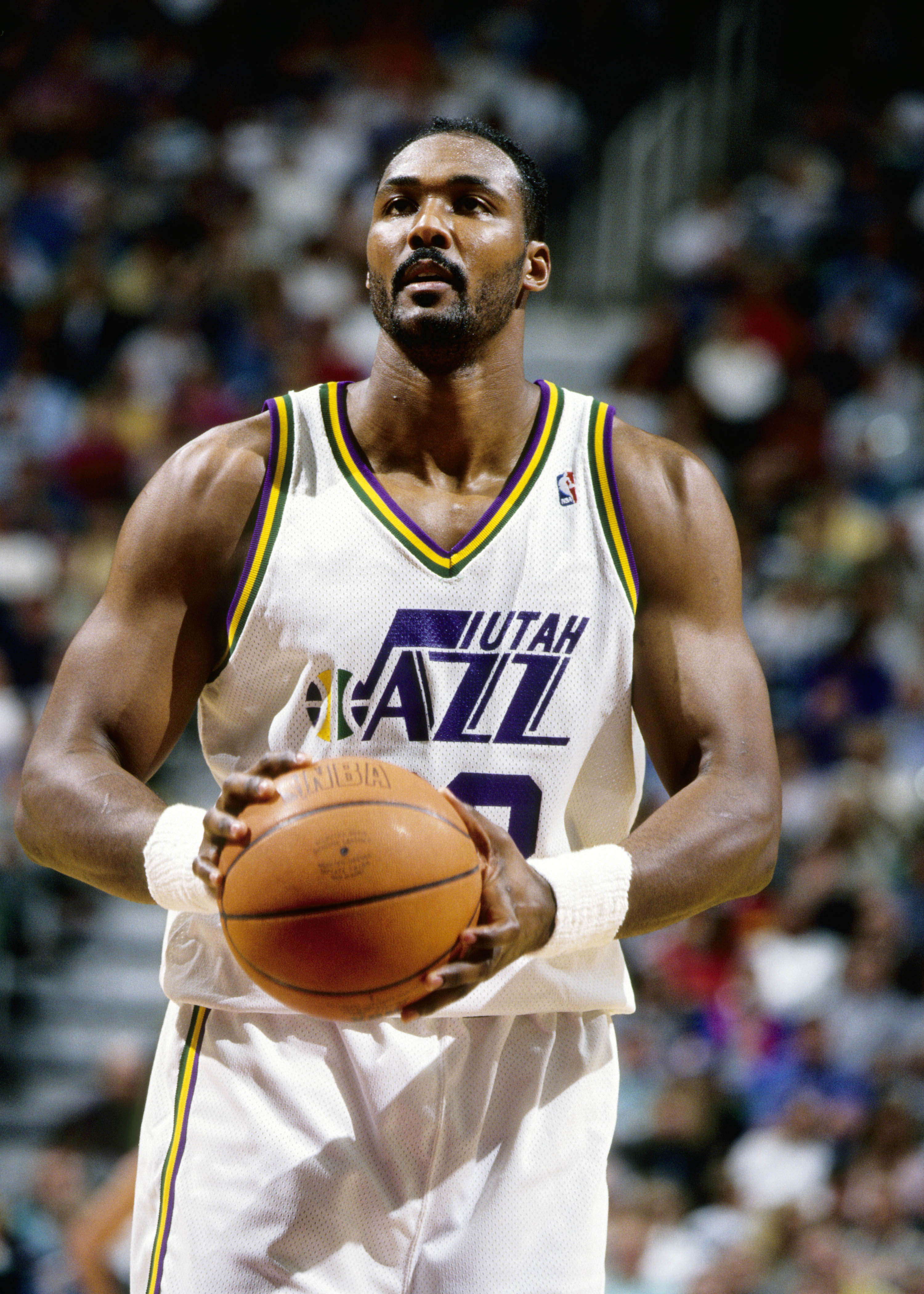
– 1988-89 (3rd)
– 1994-95 (3rd)
– 1996-97 (MVP)
– 1997-98 (2nd)
– 1998-99 (MVP)
Karl Malone managed two MVP awards as a member of the Utah Jazz, even though the first one probably should have gone to Michael Jordan. It is widely speculated that the NBA decided against giving the award to His Airness because the shooting guard already had enough MVP awards, and it was obvious he would win another one eventually. Regardless, Malone managed two MVP awards, with his best MVP season coming in 1997 when he dropped 27.4 PPG, 9.9 RPG, and 4.5 APG on 55.0% shooting from the field.
Malone also managed to win the 1999 MVP award by averaging 23.8 PPG, 9.4 RPG, and 4.1 APG on 49.3% shooting from the field. The Mailman deserves more respect for his longevity because his MVP seasons came later in his career despite being a dominant offensive force for much of his prime. Karl Malone finished runner-up to Michael Jordan in 1998 and finished third in voting in the 1989 and 1995 seasons.
7. Wilt Chamberlain – 7 Seasons
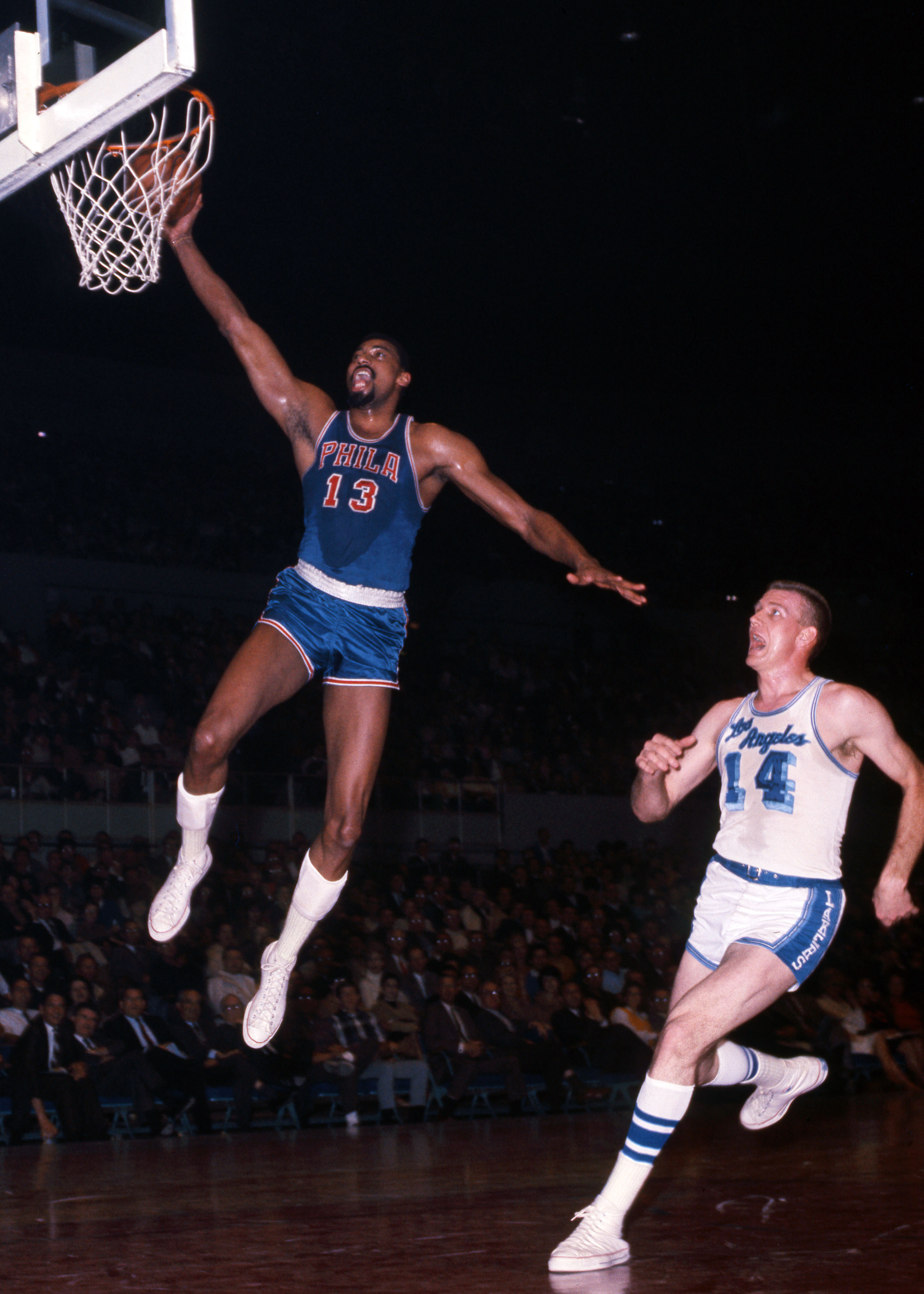
1959-60 (MVP)
1961-62 (2nd)
1963-64 (2nd)
1965-66 (MVP)
1966-67 (MVP)
1967-68 (MVP)
1971-72 (3rd)
The greatest stat-sheet stuffer in NBA history, Wilt Chamberlain, once put up 100 points in a single game along with a host of other unbreakable records. On another occasion, Chamberlain grabbed 55 rebounds in a single game, and that will likely be a record that will remain unbroken. There will never be another Wilt, and he managed to capture four MVP awards thanks to his dominance on both ends of the floor. Considering the impact and stats over his career, Chamberlain probably should have won more than four awards.
Wilt won his first MVP award in the 1960 season, posting 37.6 PPG and 27.0 RPG as a superstar in the paint. The center then won three straight MVP awards between 1966 and 1968 with the Philadelphia 76ers, posting ridiculous double-doubles with over 23 RPG in each season. Wilt finished runner-up to Bill Russell and Oscar Robertson in 1962 and 1964, respectively, and finished third in 1972. Chamberlain is one of the greatest players ever, and his four MVP awards along with seven top-three MVP finishes, are a testament to his greatness.
6. Larry Bird – 8 Seasons
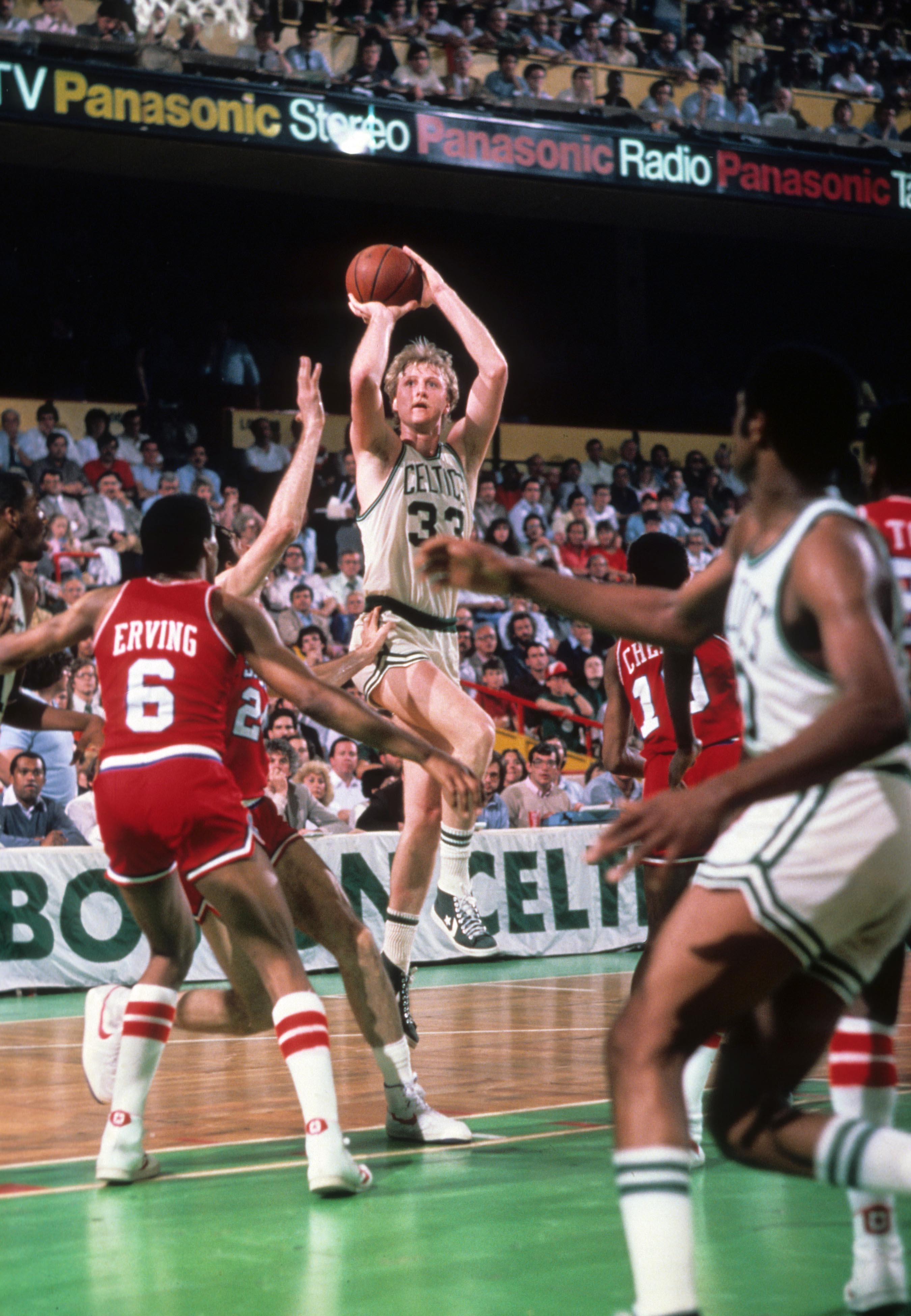
– 1980-81 (2nd)
– 1981-82 (2nd)
– 1982-83 (2nd)
– 1983-84 (MVP)
– 1984-85 (MVP)
– 1985-86 (MVP)
– 1986-87 (3rd)
– 1987-88 (2nd)
Larry Bird is the last player in NBA history to win three straight MVP awards and finished his career with three of the most valuable individual accolades. Bird played in the NBA for 13 seasons and had eight years where he had the best opportunity to capture the MVP trophy, finishing second four times and third one time. His seasons between 1984 and 1986 were iconically great as Larry Legend won three MVP Awards and was well-deserving of all of them.
Bird had it all offensively, including toughness to finish inside and a deep-range jumper. Up until LeBron James, Bird had the strongest claim of being the best small forward of all time- and for eternity. As one of the legends of the game, Bird is well-deserving of every MVP he won, and he came runner-up on more than a couple of occasions where arguments could be made he deserved at least one more trophy.
3T. Magic Johnson – 9 Seasons
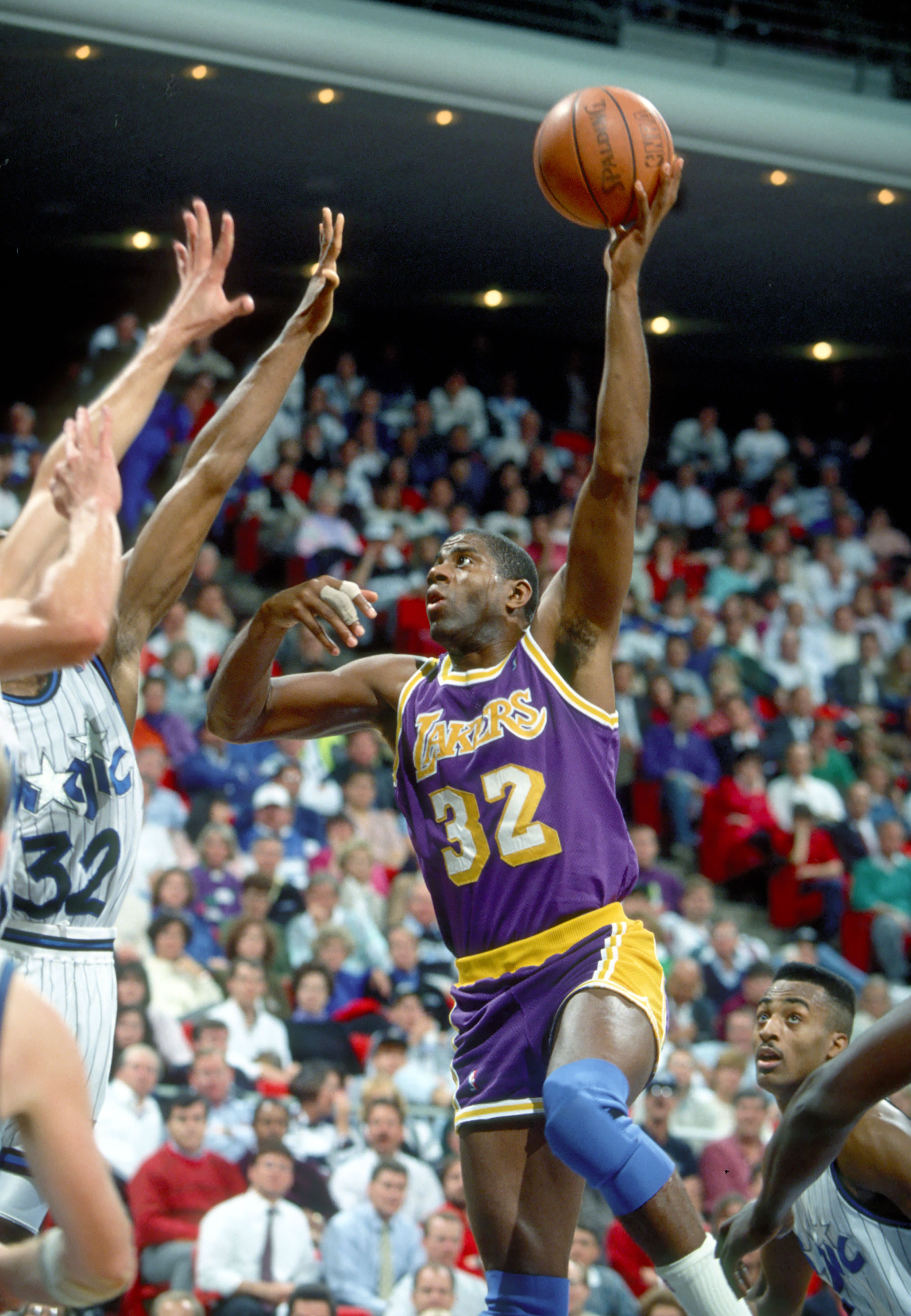
– 1982-83 (3rd)
– 1983-84 (3rd)
– 1984-85 (2nd)
– 1985-86 (3rd)
– 1986-87 (MVP)
– 1987-88 (3rd)
– 1988-89 (MVP)
– 1989-90 (MVP)
– 1990-91 (2nd)
Unsurprisingly, the greatest point guard of all time and Los Angeles Lakers legend Magic Johnson captured multiple MVP Awards over his career. His first came in the 1986-1987 season, where he was the undisputed leader and most spectacular player of a dominant Lakers team. He averaged 23.9 PPG, 6.3 RPG, and 12.2 APG in that year and led the Lakers to a 65-17 record which topped the West. Magic then won the MVP awards in the 1989 and 1990 seasons, posting 22.5 PPG, 7.9 RPG, and 12.8 APG, followed by 22.3 PPG, 6.6 RPG, and 11.5 APG, respectively.
The most dominant floor general of all time finished second twice and third four times over the nine seasons when he was completely in the running for the MVP award. Johnson competed at a superstar level during the same era as Larry Bird, who did with three straight MVP awards in the 1980s. Also, Johnson also had to ward off competition from Moses Malone, Julius Erving, and Michael Jordan during that decade, so there is no issue with the greatest point guard ever finishing third four times.
3T. Bill Russell – 9 Seasons
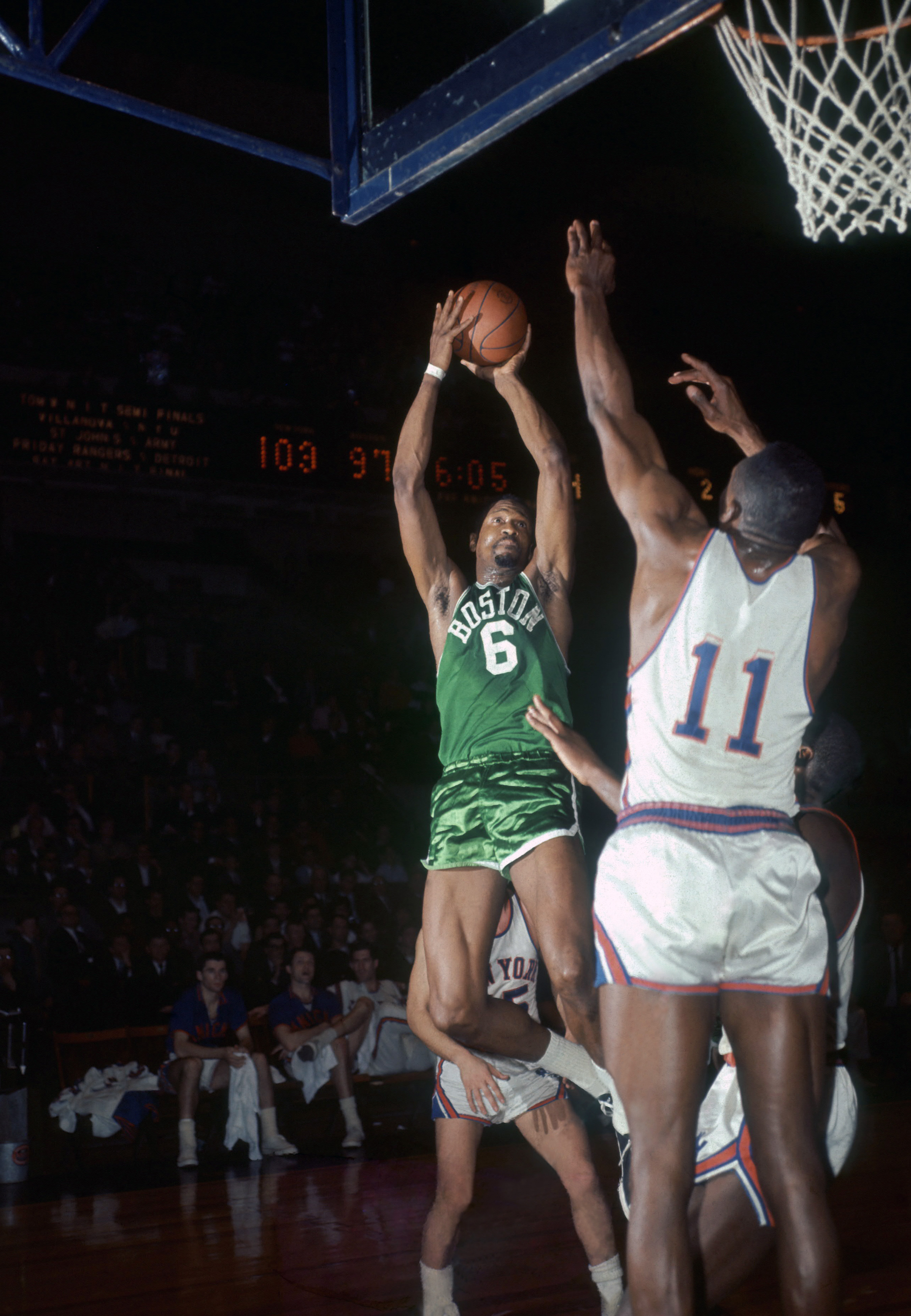
– 1957-58 (MVP)
– 1958-59 (2nd)
– 1959-60 (2nd)
– 1960-61 (MVP)
– 1961-62 (MVP)
– 1962-63 (MVP)
– 1963-64 (3rd)
– 1964-65 (MVP)
– 1966-67 (3rd)
An 11-time NBA Champion, the late and great Bill Russell won five MVP Awards thanks to his defensive dominance, consistent rebounding, and his one-of-a-kind leadership. Russell was the unquestioned leader of the dominant Celtics team of his era, and he will go down as the greatest winner in NBA history. His MVP titles are a testament to that as well because even if Wilt Chamberlain had better individual stats career-wise, Russell had the accolades.
Russell won the MVP award five times over the nine seasons in which he was in the running for it, finishing second twice and third twice. Fending off competition from Wilt Chamberlain and Oscar Robertson is absolutely amazing, and the center was bound to finish behind these two players at some points during the late 1950s and most of the 1960s decade. With nine seasons among the top 3 in MVP voting, Bill Russell’s name is etched in NBA lore.
3T. Kareem Abdul-Jabbar – 9 Seasons
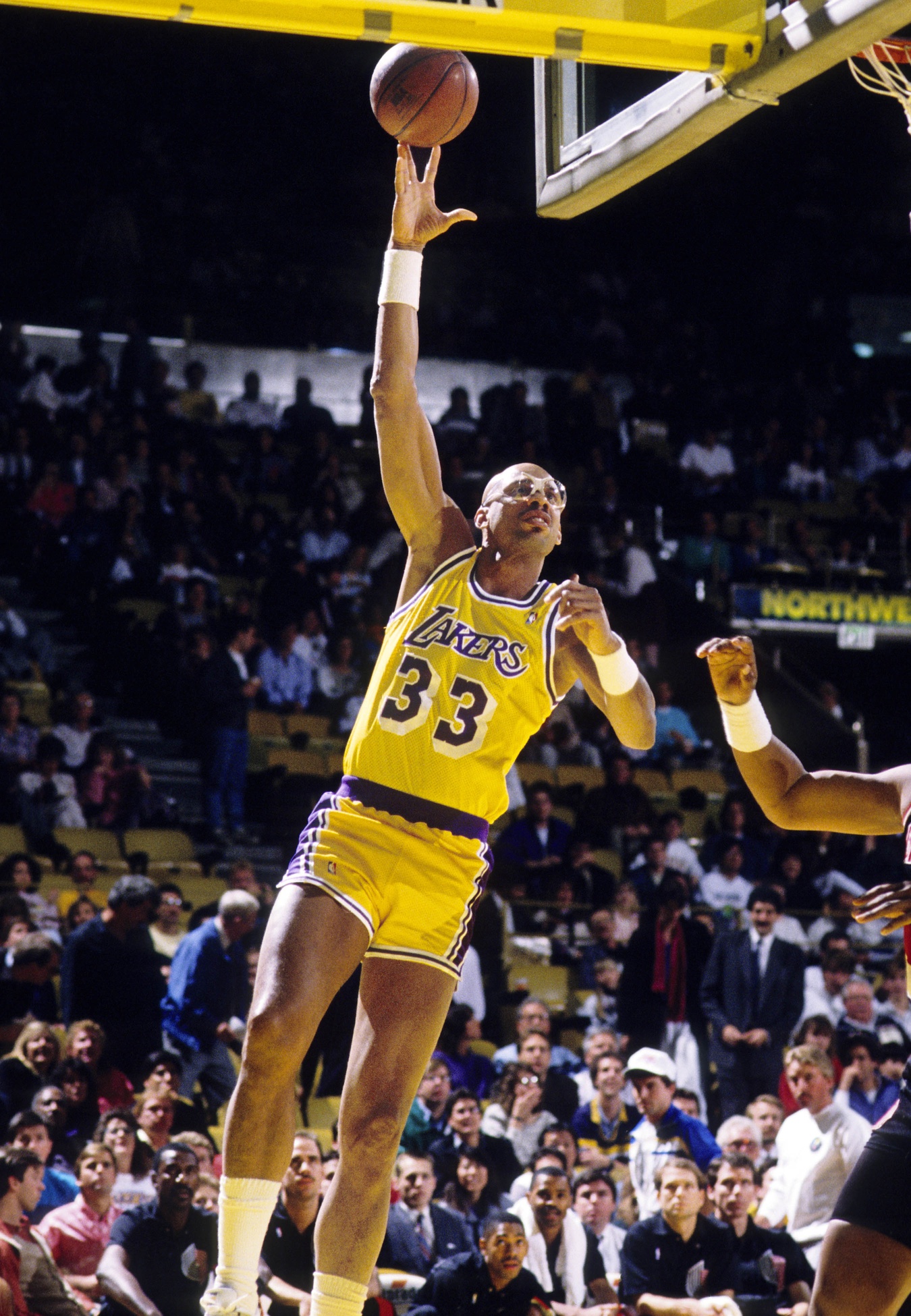
– 1969-70 (3rd)
– 1970-71 (MVP)
– 1971-72 (MVP)
– 1972-73 (2nd)
– 1973-74 (MVP)
– 1975-76 (MVP)
– 1976-77 (MVP)
– 1979-80 (MVP)
– 1980-81 (3rd)
Possibly a top three player all-time when taking into accomplishments, skills, and impact, Kareem Abdul-Jabbar has one of the greatest resumes in sports history. He was a winner at every level and is the number one leading scorer of all time. He had an unstoppable sky hook maneuver that could not be blocked or stopped. The superstar center won a whopping six MVP titles for two different teams, something we might never see again.
Kareem was in the running for the MVP award nine times in his illustrious career, finishing second once and third twice. Every other time, the center captured the elusive MVP trophy. Amazingly, everyone seems to remember Kareem’s all-time scoring total or his six NBA titles when discussing his accolades. Still, his six MVP awards are the most by any player in history, and his dominance must be respected until today.
2. Michael Jordan – 10 Seasons
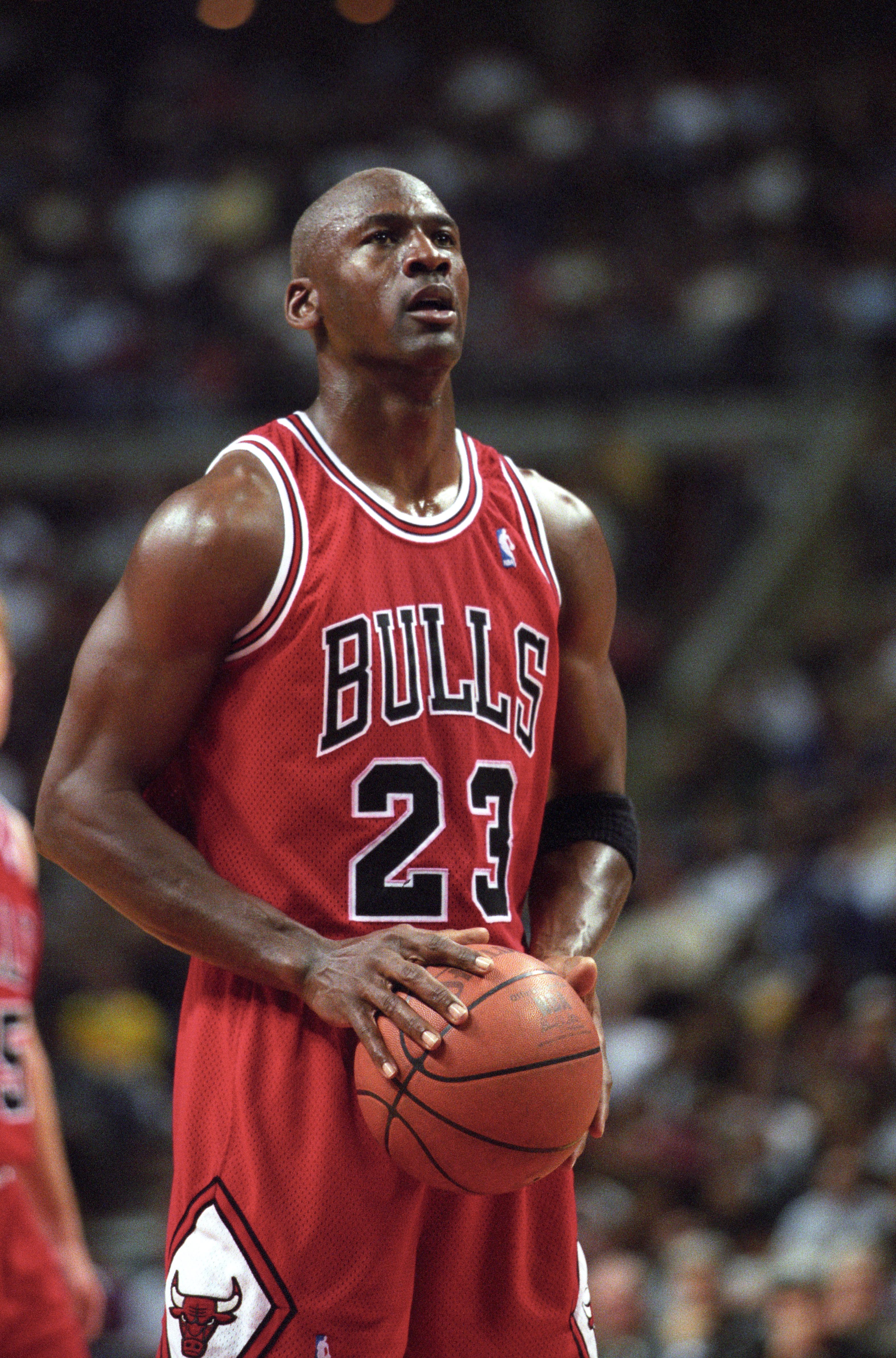
– 1986-87 (2nd)
– 1987-88 (MVP)
– 1988-89 (2nd)
– 1989-90 (3rd)
– 1990-91 (MVP)
– 1991-92 (MVP)
– 1992-93 (3rd)
– 1995-96 (MVP)
– 1996-97 (2nd)
– 1997-98 (MVP)
No doubt about it, Michael Jordan deserved every MVP Award he won over his career. In fact, many argue he should have won far more MVP awards and should have retired with at least seven of them, as Karl Malone and Magic Johnson might have stolen two. In terms of who was the best player every season, Jordan would have won the MVP award every year. Still, MJ put up ridiculous numbers and took over countless games; it was hard to count.
As the greatest player of all time, there is not much more that has to be said when discussing MVP trophies. Jordan’s number of five MVP awards ranks second all-time alongside Bill Russell, with only Kareem Abdul-Jabbar having one more with six. Michael had two retirement stints which did take away his chances at winning more than five MVPs, but in the ten seasons he was among the top three, Jordan finished second three times and third twice.
1. LeBron James – 11 Seasons
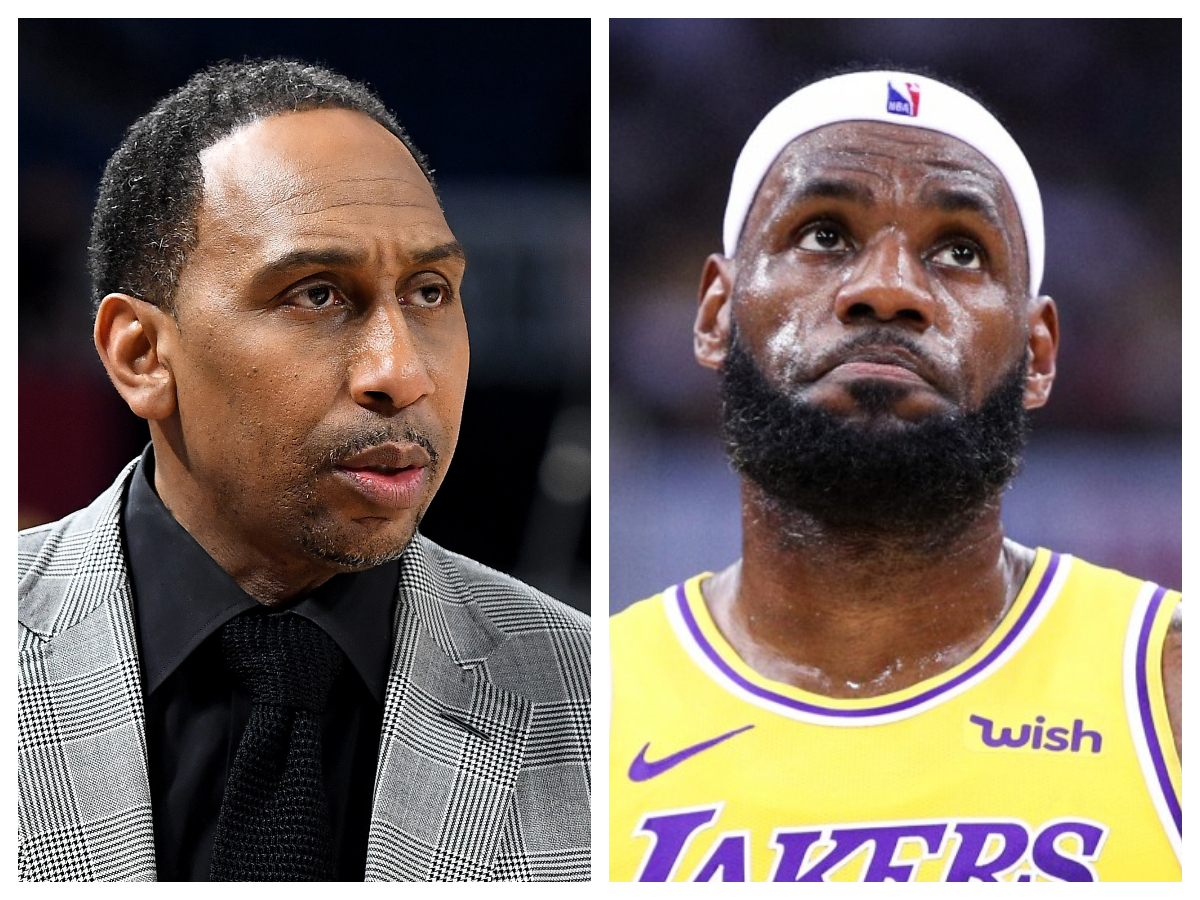
– 2005-06 (2nd)
– 2008-09 (MVP)
– 2009-10 (MVP)
– 2010-11 (3rd)
– 2011-12 (MVP)
– 2012-13 (MVP)
– 2013-14 (2nd)
– 2014-15 (3rd)
– 2015-16 (3rd)
– 2017-18 (2nd)
– 2019-20 (2nd)
As possibly the greatest regular-season performer in NBA history in terms of longevity and impact, The King LeBron James managed two back-to-back MVP seasons with the Cleveland Cavaliers and Miami Heat. During those four seasons, LeBron James was simply the most unstoppable physical athlete we have ever seen in terms of overall ability. He was quick, strong, and explosive and could not be stopped. Especially with the Miami Heat, James had one of the most dominant MVP seasons in history as he swept the accolades by capturing the NBA title, Finals MVP, and MVP awards in the 2012 and 2013 seasons.
LeBron, like Michael Jordan, for example, probably should have won at least one or two more MVP trophies. He did get slighted due to voter fatigue and also by being too strong and too big, but that doesn’t take away from James’ greatness. The King had a whopping eleven seasons in the running for the MVP award, winning four awards, finishing four times, and finishing third three times. What James has done in terms of longevity and impact is to be respected, and nobody has done it better for longer than The King.

